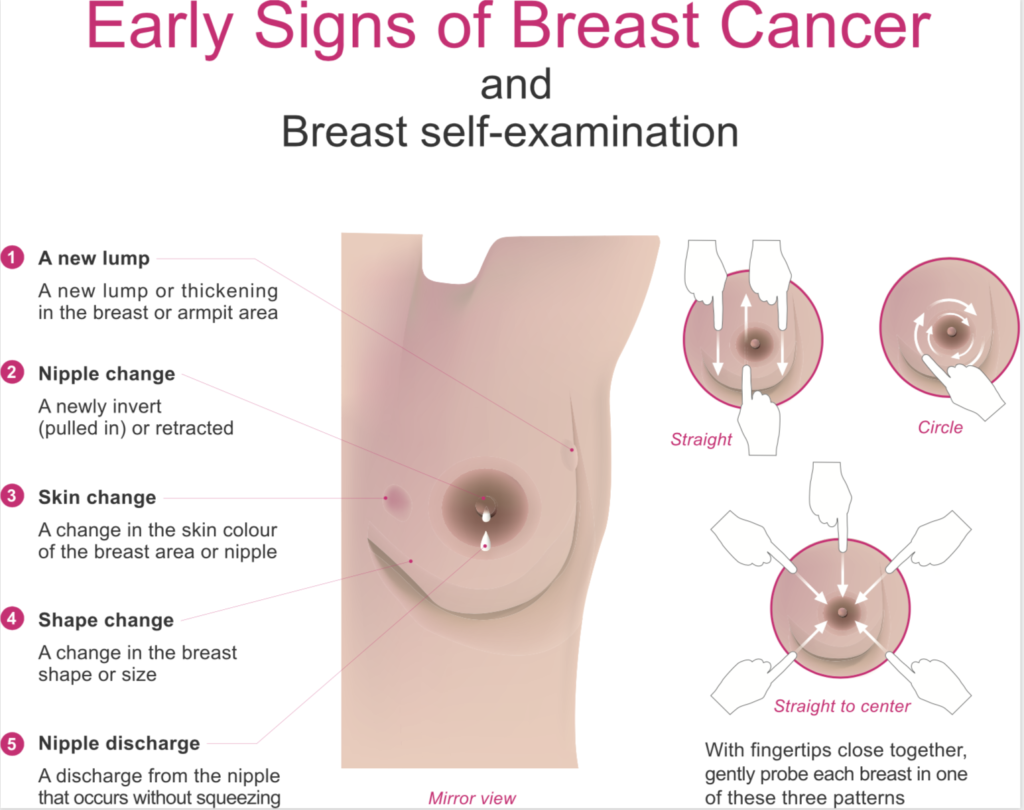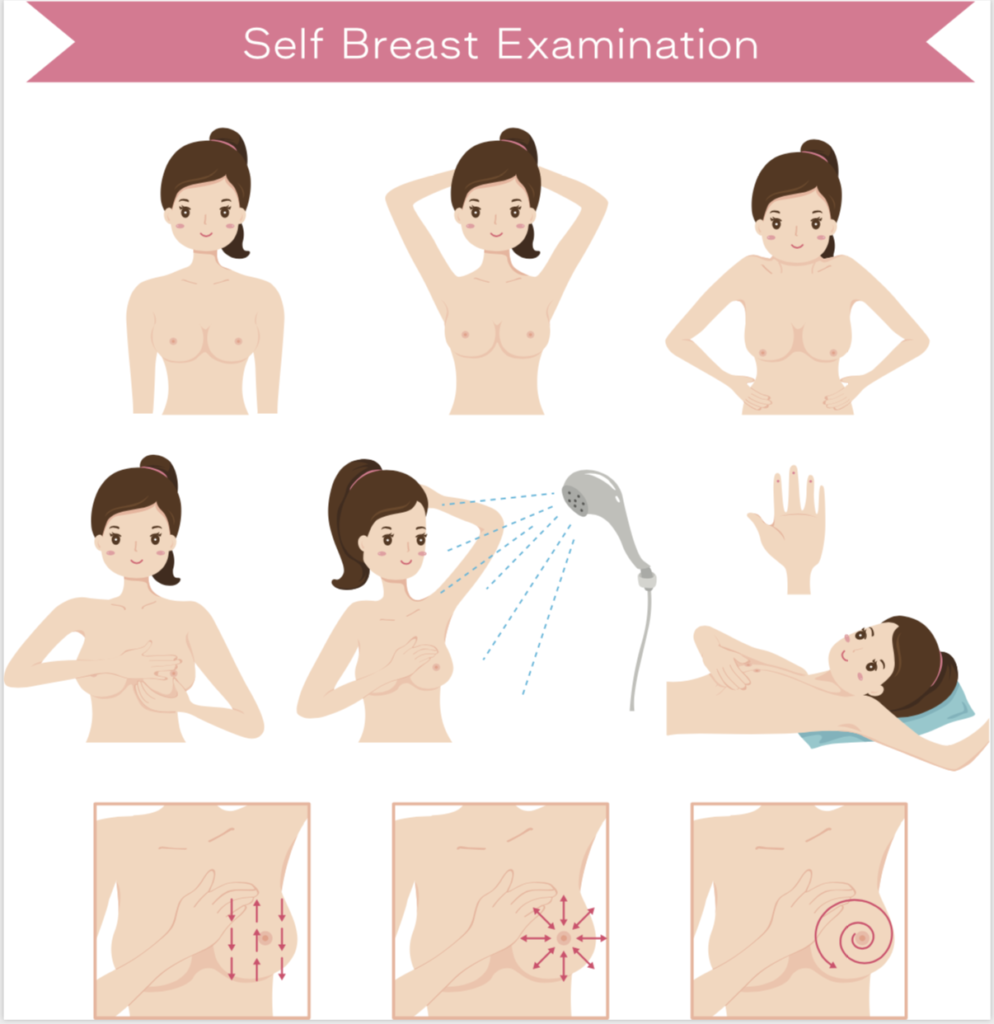Breast cancer awareness month
Make sure you’re checking yourself regularly … not just in October
October is breast cancer awareness month, so it’s officially that time of year to check your breasts for any unusual lumps, bumps or other symptoms mentioned below.
But while it’s great to put breast cancer under the spotlight every autumn, don’t leave it until next year before you check them again.
‘Breast cancer is the most common cancer in the UK, with roughly 1 in 8 women diagnosed at some point in their lifetime. But with a good chance of full recovery if breast cancer is detected early, it’s vital to check your breasts regularly and speak to your GP as soon as you find something you’re concerned about,’ says ZoomDoc CEO, Dr Kenny Livingstone.
Women in the UK aged 50-71 are invited to NHS breast screenings every three years, to help detect breast cancer in the early stages and prevent disease progression.
But younger women and even men can also be diagnosed with breast cancer, which is why knowing the signs and symptoms to look out for is key, whatever your age or sex.
So, what are the most common signs and symptoms of breast cancer?

How to check your breasts and what to look out for…
The most noticeable symptom, according to the NHS, is ‘usually a lump or area of thickened breast tissue’.
‘Most lumps aren’t cancerous but if you spot anything unusual it’s important to get them checked by your doctor,’ says Dr Kenny.
Other symptoms can include:
- a change in the size or shape of one or both breasts
- discharge from either of your nipples, which may be streaked with blood
- a lump or swelling in either of your armpits
- dimpling on the skin of your breasts
- a rash on or around your nipple
- a change in the appearance of your nipple, such as becoming sunken into your breast.
Pain is not usually a symptom of breast cancer.

Know the signs and speak to a GP early if any concerns
What causes breast cancer?
Although the exact cause of breast cancer is unknown, there are factors that may increase your risk of developing it.
- Age.
Your risk of developing breast cancer increases as you get older. Breast cancer occurs most commonly in women aged over 50 years.
- Family history of breast or ovarian cancer.
If you have a family history of breast or ovarian cancer, you may also carry the breast cancer genes (BRCA1 and BRCA2), which increase your risk for developing breast cancer.
- Previous breast cancer or lump.
If you have had breast cancer before, you are at higher risk of developing it again.
- Medication
Some medicines are associated with increased risk of breast cancer, including hormone replacement therapy (HRT) used for menopause and the contraceptive pill.
- Lifestyle factors
Lifestyle factors can increase your risk of developing breast cancer, including alcohol consumption and being overweight or obese.
How to reduce your risk of breast cancer
Check your breasts
There is no right or wrong way to check your breasts, but it’s important to know how your breasts usually look and feel so you can spot any changes quickly.
Regularly self-examining your breasts, combined with attending NHS breast screening programmes, can help with early detection of breast cancer.
Aim for a healthy lifestyle
Some women are at higher risk of breast cancer than others and it’s not known if it can be prevented altogether. But making changes to your lifestyle may help to reduce your risk of breast cancer, as well as keeping you fit and healthy!
Lifestyle goals to aim for include maintaining a healthy body weight, exercising regularly, lowering your saturated fat intake and reducing alcohol consumption.
Talk to an expert
Treatment (including surgery) is also available for women who are at increased risk of breast cancer – if you are concerned that you may be at increased risk you should speak to a GP who can advise you and refer you on to a specialist if appropriate.
For more information, advice and support on breast cancer, check out the following websites:

It is important to self check your breasts regularly
How ZoomDoc can help you
If you’re concerned about signs or symptoms you’ve found, or you or a loved one have been affected by breast cancer, ZoomDoc’s GPs are at hand to give you advice, support and phone, video or at-home consultations, 24/7.
Download our app for instant GP access.

